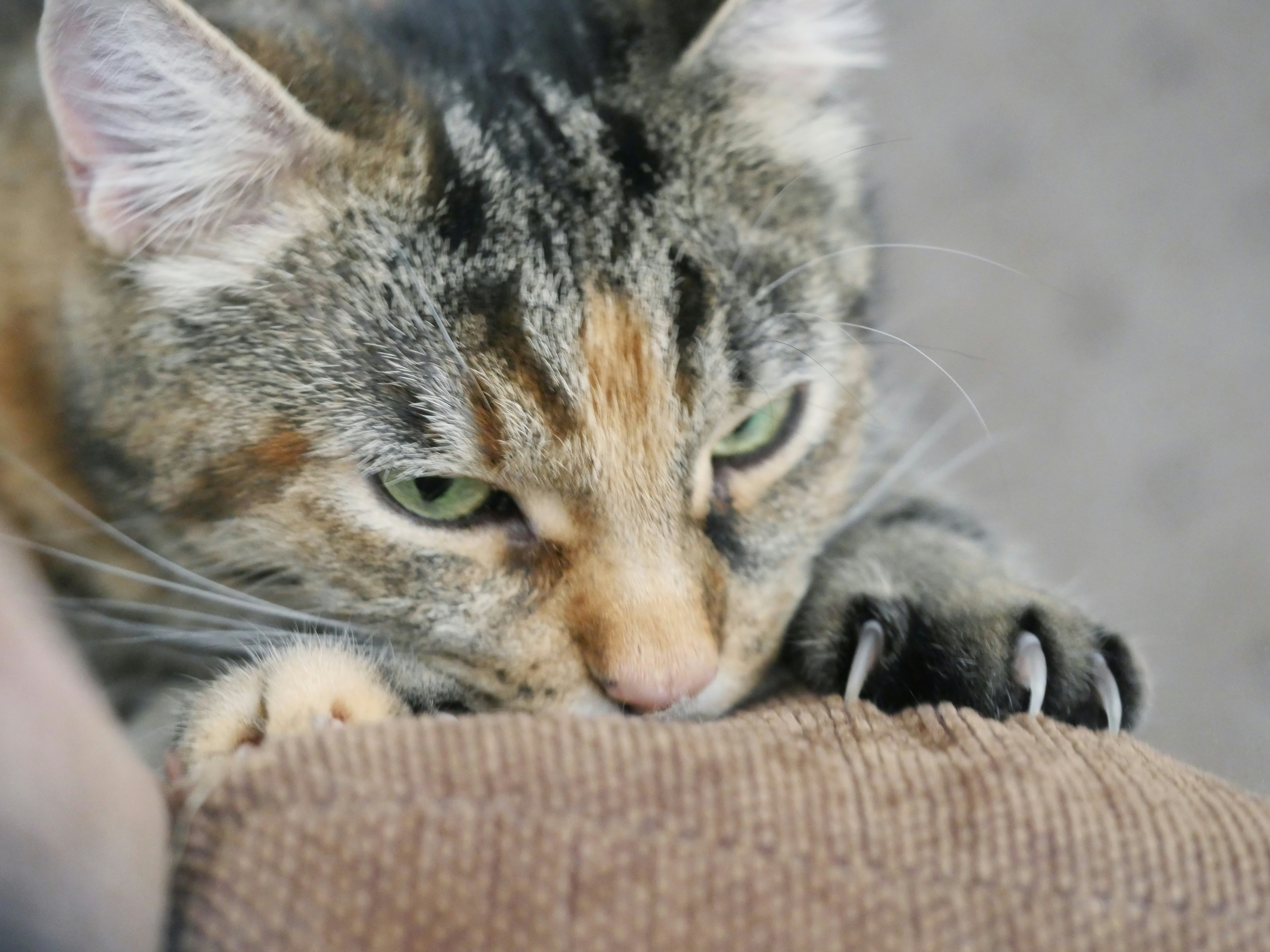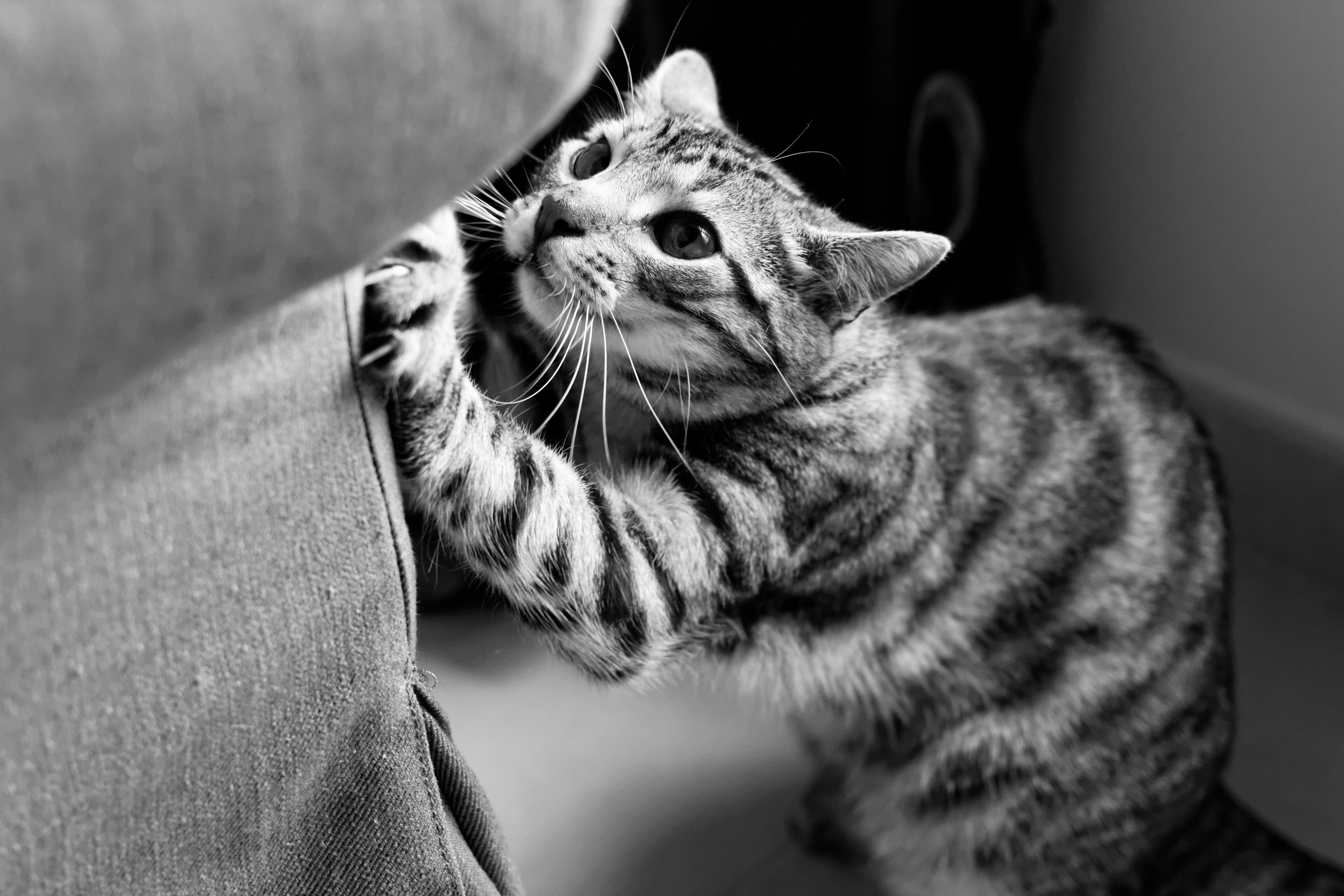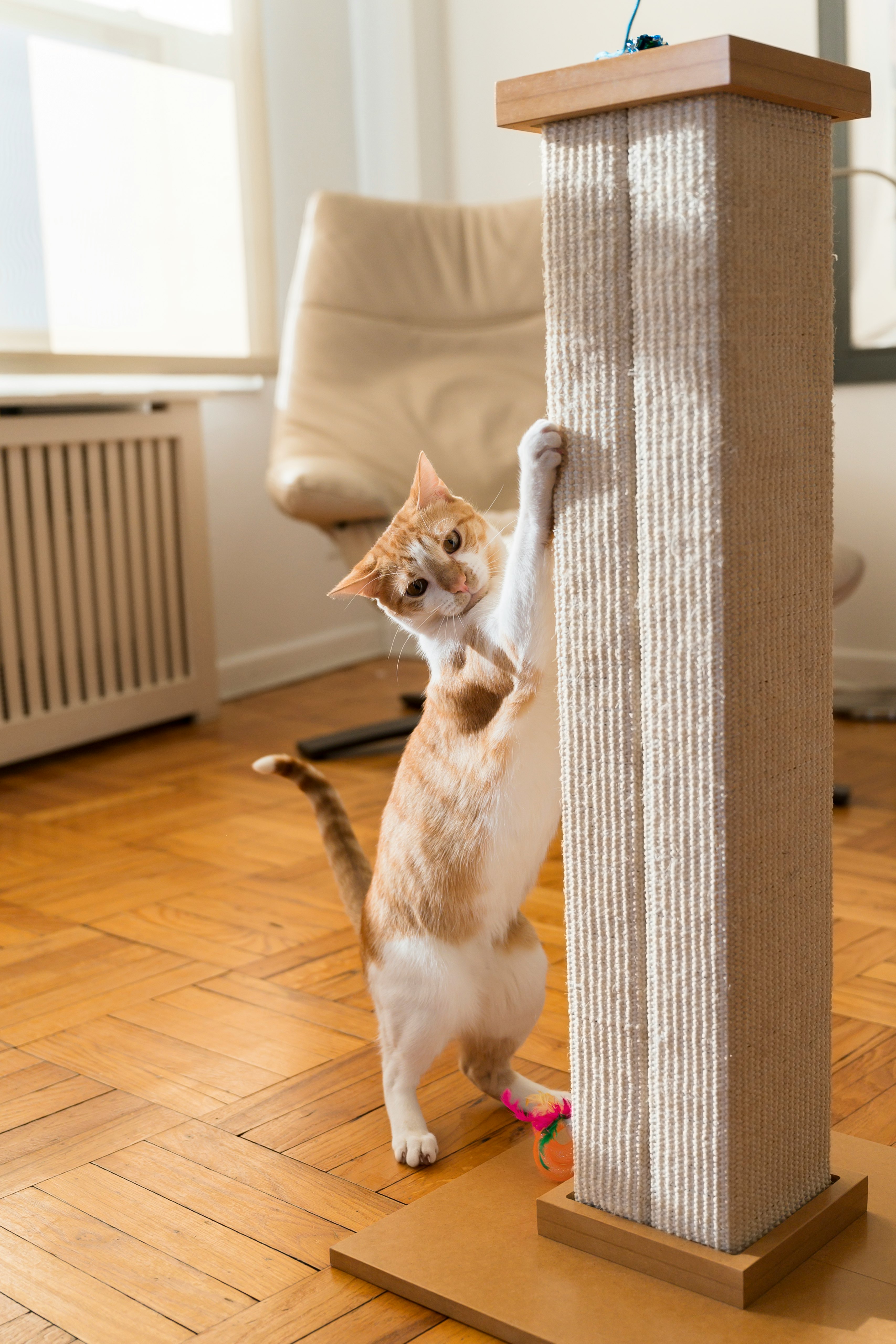
Every cat owner knows a movie night isn’t complete without your feline companion scratching away at the plush lining of the living room furniture.
But as it turns out, this common destructive behavior could actually be a sign of a strong emotional bond between a human and their cat, according to new research published in the latest issue of the Journal of Veterinary Behavior.
“I believe that the data reported here will positively affect the relationships between humans and their animals, encouraging owners to seek more knowledge and understanding about their cats and, consequently, improve and strengthen the affective bonds created between the two species,” Fernanda Vieira Amorim da Costa, a co-author on the study and associate professor in veterinary medicine from at the Federal University of Rio Grande do Sul, tells Inverse.
What’s new — The research team provided an online survey to cat owners in Brazil, and five hundred owners responded to the questions. The researchers based the survey on the Cat Owner Relationship Scale, a methodology developed in 2017 which helps assess a cat owner’s perceived relationship with their pet.
The scientists used those responses to determine the “association between the owner's level of emotional closeness and the presence of unacceptable behavior in Brazilian cats.”
Certain factors, like having more than one pet and visiting a veterinarian regularly, were associated with emotional closeness, which makes sense since owners that are more attentive to their pets’ health are likely to be emotionally close to them.
Additionally, roughly 90 percent of the study participants were female, and the female owners had a higher level of emotional closeness compared to male owners, which tracks with previous research studying gender and human-cat bonds.
Then, the researchers examined the link between certain “problem behaviors” and emotional bonds between human owners and their cats. The researchers didn’t find any relationship between house-soiling, aggression, and aggressive vocalization — such as meowing excessively — and owners’ closeness to their pets. Da Costa says this likely has to do with the fact that owners who report a higher degree of attachment to their cats will keep the animal “despite having behavioral or health problems.”
But when the scientists took a closer look at one specific behavior, their findings stunned them.
“Surprisingly, owners of cats that do not scratch the furniture had a lower level of emotional closeness compared to those reporting this inappropriate behavior,” write the researchers.
In other words: Pet owners whose cats scratched their furniture had a higher degree of emotional attachment to their pets compared to felines who didn’t exhibit this destructive behavior. So, does your kitty tearing up your couch mean it weirdly loves you more? Let’s explain.
Why is my cat scratching furniture?

“Scratching the environment is a normal cat behavior,” Katherine Pankratz, a board-certified veterinary behaviorist not affiliated with the study, tells Inverse.
Even though their human owners might see furniture scratching as a problem, it’s actually a natural expression of their emotional needs as felines.
But the new study suggests there is a link between this behavior and the level of emotional closeness between pet and owner.
“It makes sense to me that cats that are more socially attached to their owners can be destructive as a way of getting attention,” Chyrle Bonk, a veterinarian at PetKeen, tells Inverse.
Yet, Pankratz isn’t so sure this is simply a matter of emotionally close pet owners letting their coddled cats get away with destructive behavior since their cats did not display other concerning behaviors like aggression or house-soiling.
But there may be an alternative explanation. Pankratz says it’s possible that humans who are emotionally closer to their cats “may be more understanding and respectful of their cat's needs for a normal species behavior such as scratching objects.”
Da Costa agrees, stating that “owners with a lower attachment level may not pay as much attention to the cat's behaviors because they interact less, or the animal does not have free access to all furniture and objects.”
Similarly, Pankratz adds: “Although it would be difficult to assess, the results make me curious if owners with a lower emotional closeness may be less observant or less aware of their cats’ behavior — i.e., scratching — and whether or not this might have impacted their survey responses.”
How can I stop my cat from scratching furniture?

“One of the most common reasons for cats scratching — and subsequent destruction — of furniture is that the furniture provides for their needs better than any alternative that may or may not have been provided,” Pankratz says.
That being said, even if you accept your cat’s needs, it’s pretty expensive to buy a new couch every year. Experts say there are ways you can maintain your bond with your cat while ensuring they don’t destroy your household possessions.
First: Provide scratch-safe alternatives for your cats to fulfill their emotional needs. Pankratz also mentions that cats frequently like to scratch when they wake up from their naps. Here are some tips Pankratz suggests owners keep in mind when considering alternative scratching spaces for pets:
- Providing a tall enough acceptable scratching surface (i.e., a scratching post)
- Buying a stable scratching post that does not move or wobble
- Placing the post in significant locations near where the cat rests/spends time
Pankratz says most cats prefer vertical scratching posts, but there are some that prefer horizontal or are open to both styles. Try different options to see which one your kitty prefers.
Second: Make furniture “less desirable” for your pet to scratch, according to Pankratz. This could involve covering the furniture with double-sided sticky tape, which isn’t as pleasing to scratch, or simply rearranging your furniture so it’s less conveniently located for your pet.
Pankratz says owners should not punish their pets for scratching furniture, since this reaction will instill fear and hurt your bond with your cat. Plus, your pet will likely just continue scratching while you’re not around.
Finally, Bonk says that big life changes — such as moves or a new addition to the family — could lead to more destructive behavior like furniture scratching if your cat is suddenly receiving much less attention than before.
“Owners can try to curb this destructive behavior by carving out some one-on-one time with their kitty or by figuring out ways to incorporate their cat into their new lifestyle change,” Bonk says.







